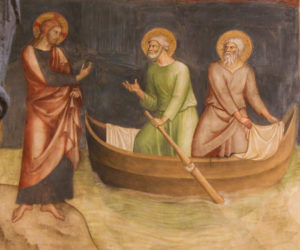Monday, June 14
7am – Jean Reno Greenwald
(Bev & Larry Hoffman)
5:15pm – Ann Gustafson
(Jeannette Giannone)
Tuesday, June 15
7am – Anna A. Eleyidath
(Augustine Eleyidath)
5:15pm – Shirley Logan
(Lisa Logan & Lori Logan Motyka)
Wednesday, June 16
7am – John & Edith Bakalar
(John Busciacco)
5:15pm – Jean Anne Staab
(Genny Severino)
Thursday, June 17
7am – Special Intention for Rev.Msgr. David Hoefler
(Chris Sommer)
5:15pm – George Friedel
(Mark & Donna Yehling)
Friday, June 18
7am – Richard Willaredt
(Dawn Dowdy)
5:15pm – Norman & Eileen Rovey
(Family)
Saturday, June 19
8am – Warren Bequette
(Betty Hodapp)
4pm – Joseph Kohlrus, Sr.
(Augustine Eleyidath)
Sunday, June 20
7am – Mary Ann Midden
(William Midden)
10am – Charles & MercedesNesbitt
(Kathy Frank)
5pm – For the People
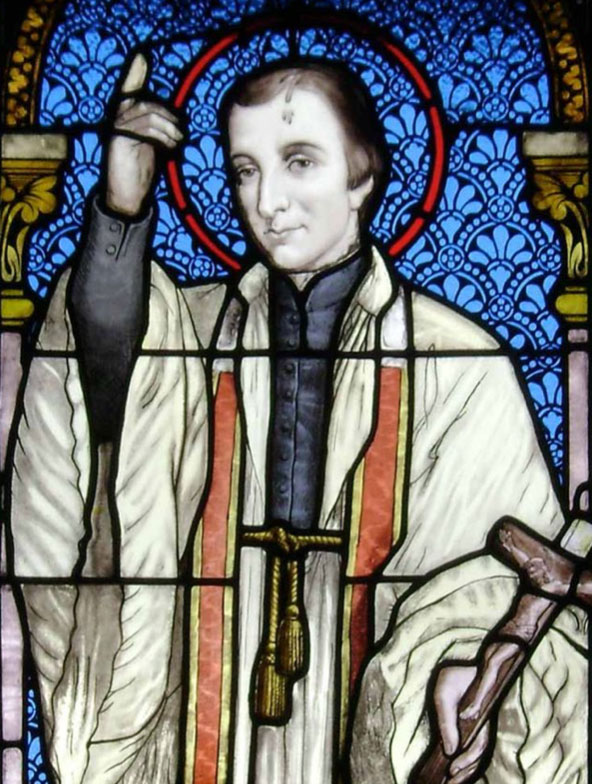

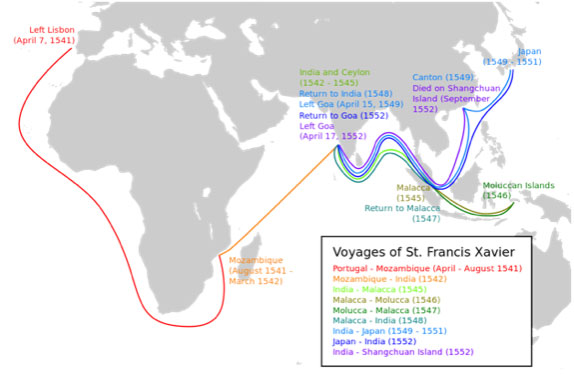
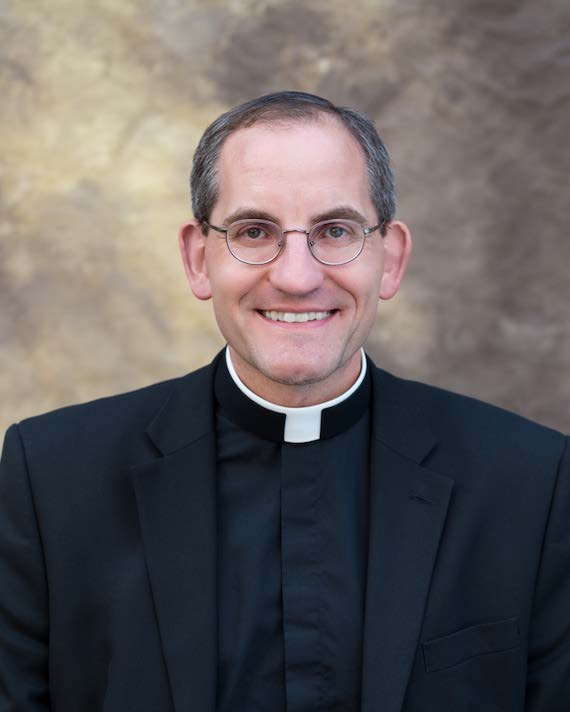

 Because of Jesus’ sharing of his intimate life of prayer, we know that God is Trinity. Hinted at under various guises in the Old Testament, the Trinity is spoken of in a direct way in both the Gospels and the New Testament epistles. The Church later articulated what we know about it in clear and precise terms. The Trinity, a communion of divine Persons in utter unity, unveils an eternal foundation to what we mean by saying “God is love.” Nevertheless, the Trinity cannot be fully grasped, because God is mystery, far above human comprehension.
Because of Jesus’ sharing of his intimate life of prayer, we know that God is Trinity. Hinted at under various guises in the Old Testament, the Trinity is spoken of in a direct way in both the Gospels and the New Testament epistles. The Church later articulated what we know about it in clear and precise terms. The Trinity, a communion of divine Persons in utter unity, unveils an eternal foundation to what we mean by saying “God is love.” Nevertheless, the Trinity cannot be fully grasped, because God is mystery, far above human comprehension.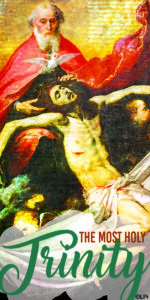 As Christians, we have learned to read Scriptures relating to the Father, Son, and Holy Spirit in light of the doctrine of the Trinity. This is an example of reading Scripture according to the analogy of faith (Catechism, no. 114). The early Christians understood the Trinity intuitively by faith, but they were not yet able to plainly articulate it. They could, however, sense heresy when something was awry in an interpretation. Out of controversies and debates and aided by the guidance of the Holy Spirit, the Church came over the course of several centuries to the full doctrine of the Trinity. Along the way, the Church even developed the term person as we use it today to speak of an individual of a rational nature. The doctrine of the Trinity states that there is one God, three distinct equal divine Persons – Father, Son, and Holy Spirit.
As Christians, we have learned to read Scriptures relating to the Father, Son, and Holy Spirit in light of the doctrine of the Trinity. This is an example of reading Scripture according to the analogy of faith (Catechism, no. 114). The early Christians understood the Trinity intuitively by faith, but they were not yet able to plainly articulate it. They could, however, sense heresy when something was awry in an interpretation. Out of controversies and debates and aided by the guidance of the Holy Spirit, the Church came over the course of several centuries to the full doctrine of the Trinity. Along the way, the Church even developed the term person as we use it today to speak of an individual of a rational nature. The doctrine of the Trinity states that there is one God, three distinct equal divine Persons – Father, Son, and Holy Spirit.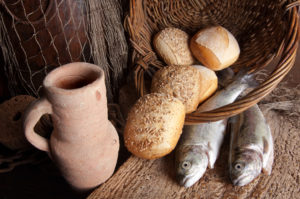 Today’s story begins with the crowd following Jesus and the disciples to a deserted place. A practical problem begins to unfold: How are we going to feed all these people? Philip is focused purely on the problem and the lack of money. Where can we buy enough bread? It will take 200 days wages at a minimum. Philip suffers from a scarcity mentality, as do many of us. He thinks the only solution is money. This may be a realistic approach, but Philip misses just what Jesus’ question was. Not “How much will it cost?”, but “Where will we get enough?” Philip is focused on problem, impossibility, and scarcity; he is unable to focus on the possibilities in and with the presence of Jesus.
Today’s story begins with the crowd following Jesus and the disciples to a deserted place. A practical problem begins to unfold: How are we going to feed all these people? Philip is focused purely on the problem and the lack of money. Where can we buy enough bread? It will take 200 days wages at a minimum. Philip suffers from a scarcity mentality, as do many of us. He thinks the only solution is money. This may be a realistic approach, but Philip misses just what Jesus’ question was. Not “How much will it cost?”, but “Where will we get enough?” Philip is focused on problem, impossibility, and scarcity; he is unable to focus on the possibilities in and with the presence of Jesus.